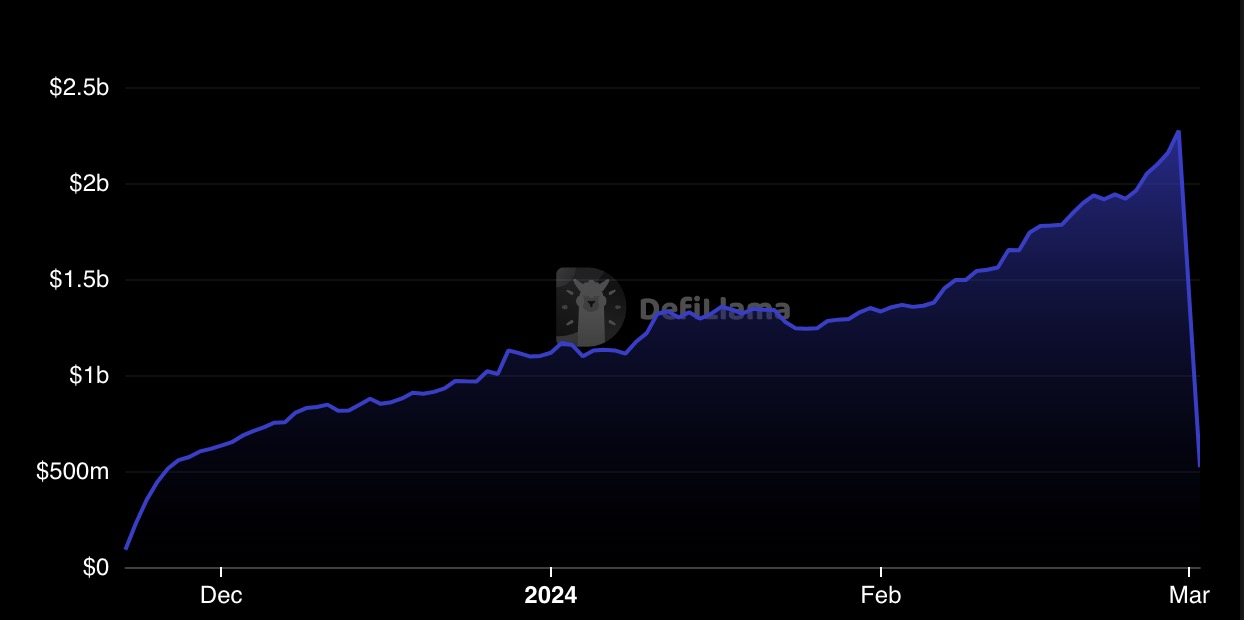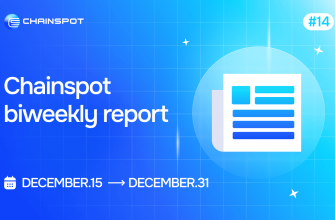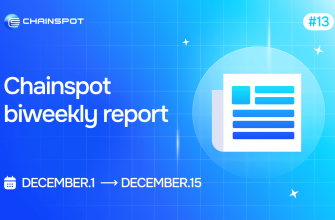Following its mainnet launch on February 29, the Ethereum-based layer two blockchain, Blast, has experienced a rapid decline in total value locked (TVL), shedding over 77% of its assets in less than 2 days, as reported by DeFiLlama data. TVL plummeted from a peak of $2.27 billion to $520 million.

Blast had previously incentivized community members to lock up their Ethereum and stablecoin assets, offering attractive annual percentage yields of up to 5% from staked ETH and real-world asset protocols. However, criticism arose from crypto stakeholders due to the inability of users to withdraw their assets until the mainnet launch, despite the allure of high yields and potential airdrops.
With the mainnet successfully launched, users swiftly withdrew their assets, leading to the significant decline in TVL.
Despite this setback, Blast remains operational, recording over 1 million total transactions on the network and witnessing the introduction of several new decentralized applications.
Simultaneously, malicious actors capitalized on the Blast mainnet launch to propagate phishing sites imitating the layer two network’s official platform.
Scam Sniffer, a Web3 security firm, reported two instances where individuals fell victim to these scams, resulting in a combined loss of over $5 million in digital assets.
In one incident, a user lost $4.39 million, comprising $ALI and $PUSH tokens, after engaging with a fraudulent Uniswap Permit2’s Permit Batch message.
insane! someone lost $4.39 million worth of $ALI and $PUSH to crypto phishing about 29 minutes ago! pic.twitter.com/sxped8KdLN
— Scam Sniffer | Web3 Anti-Scam (@realScamSniffer) March 1, 2024
Another user faced a similar situation, losing $717,817 worth of Aave BTC and Pandora tokens through an airdrop phishing site.
Beware of airdrop phishing sites impersonating Blast!
1 hour ago, someone lost $717,817 of Aave BTC and Pandora after approving a scammer's Account Abstraction wallet on a phishing site. pic.twitter.com/tCBVAUDs4T
— Scam Sniffer | Web3 Anti-Scam (@realScamSniffer) March 1, 2024
In response, Scam Sniffer issued a stern warning, emphasizing the prevalence of phishing sites impersonating Blast and advising users against clicking on links in X comments.
Blast echoed this caution, urging its community to remain vigilant against scammers and rely solely on official documentation for accessing block explorers, RPCs, and other chain-related information.
Finally, be wary of scammers. Always DYOR, and only use the official documentation for block explorers, RPCs and other chain infohttps://t.co/895z73R6DL
— Blast (@Blast_L2) February 29, 2024












